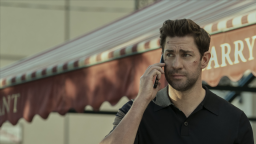IT might feel like you're killing two birds with one stone if you pee in the shower.
But one expert has warned that this bad habit could leave you with an embarrassing problem.

Posting to TikTok Dr Alicia Jeffrey-Thomas explained that peeing under a running stream of water creates an association with your brain that you need to pee.
This could eventually lead to little leakages when you least expect them.
This could be when you're at the water cooler at work – or even going through the car wash.
She explained: "There is the overall bladder fitness perspective and the pelvic floor perspective."
Read more on urinary issues

I’m a urologist here’s 5 cancer myths you need to know – and when to get help

I’m a urologist – here’s the exact way you should pee in to stop infections
Dr Jeffrey-Thomas referred to the Pavlov's dog experiment.
"He rings the bell every time he puts food out for the dog, so eventually the dog starts to associate the bell, and he starts to slobber.
"Even if there's no food there.
"If you pee in the shower or turn on the faucet or turn on the shower and sit on the toilet to pee while the water is running you're creating an association in the brain between the sound of running water with having to pee."
Most read in Health

Simple change can help you cut back on how much wine you're drinking

I'm a professional party girl and I've got an unbeatable hangover cure

Warning as new ‘tomato flu’ virus causing painful blisters infects 82 children

Exact date millions of Brits will get new Omicron-busting Covid booster jabs
The expert also previously warned that you shouldn't go the toilet for a 'just in case' wee.
Dr Jeffery-Thomas, who works at Greater Boston Urology, drew out a bladder on a piece of paper to explain.
It had three lines to show “three levels of sensation of filling”.
When the bladder has a little urine inside, at the lowest level, it “tells you there is some urine in the bladder”.
The second mid-level tells you to “make a plan to go to the toilet”.
And the third level, the “panic button”, represents when your bladder is full and tells your brain to urgently use the toilet.
The guru said if you go to the toilet “just in case”, your bladder is usually between the first and second level of fullness – before you would naturally feel an urge to use the toilet.
Top tips for stopping that ‘little bit of wee’ coming out
Pelvic health physiotherapist Clare Bourne revealed how you can stop little leaks.
Strengthen your pelvic floor muscles: Having a strong and flexible pelvic floor will help you to hold on in the times you need it most.
Make sure you’re doing your Kegels correctly: Performing a contraction of the pelvic floor correctly is essential
Take care of your bladder: Stay wrapped up nice and warm and reduce your intake of bladder irritants, such as caffeine and alcohol.
Speak to your doctor for support: If you are experiencing urine leaks or notice you are passing urine more frequently during the day or night which is impacting your daily life, seek support from your GP. You don’t have to suffer in silence.
If you routinely urinate before the bladder is even half full, it learns to signal the need to go when less volume is present.
“If we are doing this all the time… our bladder starts getting these data points and says maybe we should be sending this signal sooner,” she said.
“Now we’re going to start getting this urge to go a lot sooner than before.
“Over time this compresses these three levels together, and so the difference between feeling like there is some urine in your bladder, and feeling that panic button like you’re going to pee your pants, is going to happen in a much shorter amount of time.”
Read More on The Sun

Why you should NEVER wear flip flops or sandals on a plane

We’re disgusted after AA left us stranded for 24 hours – it was ridiculous
Fortunately, if you get into this cycle, it doesn't mean the bladder is damaged.
But it will mean you need to use the toilet more often, and more urgently. Constantly needing the loo can make daily activities more difficult.

Source: Read Full Article

